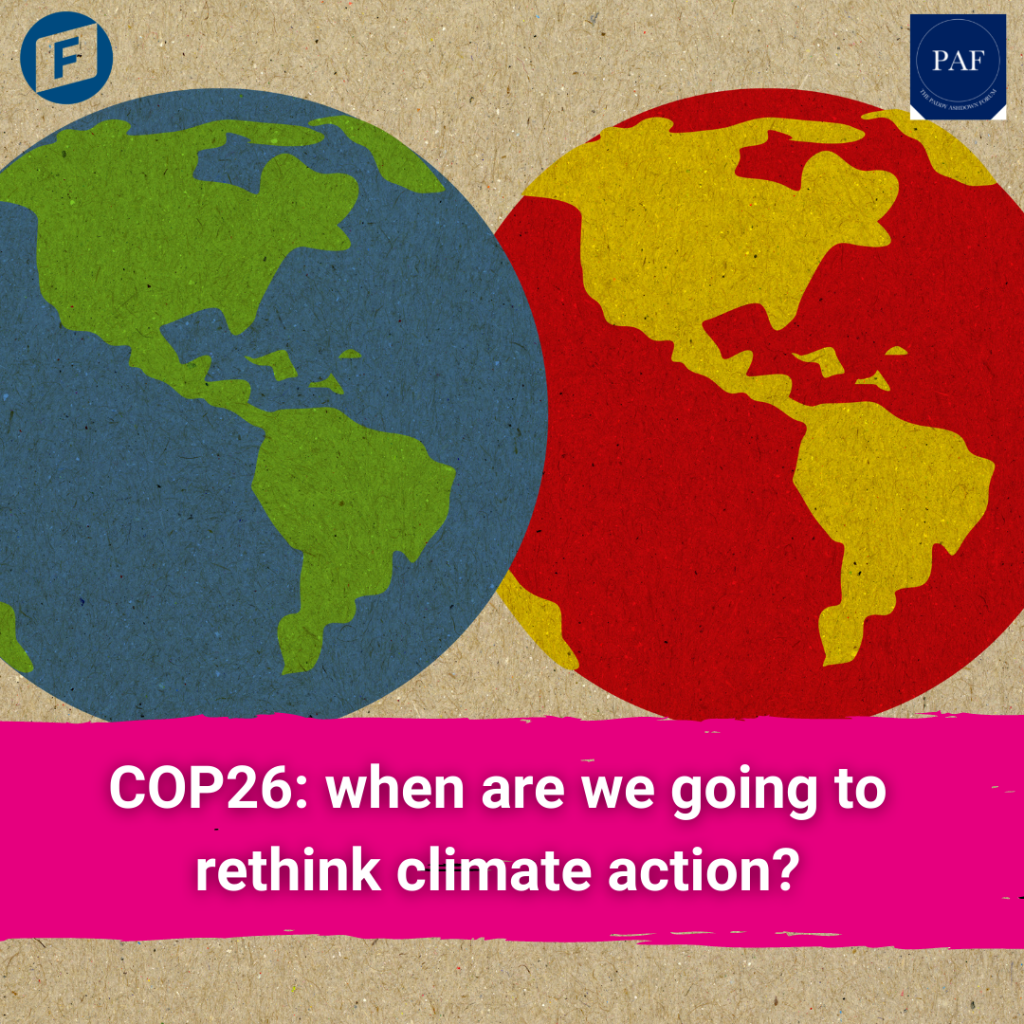
Green Deal for Real: Practical Climate Action After COP26
The core element to the project to is to example solutions to the climate paradox. The climate paradox: At COP26, climate experts stressed “the importance of adopting sustainable practices to achieve carbon neutrality by 2030. Now, we must implement the most sustainable solutions possible”…But unfortunately, there is neither the practical experience, diversity or systems thinking at decision making level to enable that outcome to happen. For example, for the trillions of dollars spent, for all the COPs, for all the technological advance, the circular economy, scientists still show that:
- emissions are still rising
- services of the biosphere are shrinking
- productivity is on the decline
- all global societies are fractured
Key Problem: Lost time is never found again
As a result of the persistent failure of decision makers to move the narrative on from diagnosing the problems and offering linear fragmented answers to offering harmonised systemic integrated solutions there is now a less than five per cent chance of keeping temperatures well below 2°C above pre-industrial levels, and less than one per cent chance of reaching the 1.5°C target set by the 2015 Paris Agreement.
“Theoretical work can spin-off under its own momentum reflecting little of the empirical world.” Ostrom, 1990
Sustainability, ESG And The Productivity Paradox, C Gleadle, 2021
Remedy
Take a Sphere Economy system view that measures the effects of feedback loops of the relationships among the fragmented parts of organisations, economies, communities, and the natural environment to account for the effects of multiple interacting investment, organisational, environmental, governance and social ecosystems. To understand and take account of feedback loops of and between decisions will reduce pressure on ecosystem services, the inflow of raw material, and absorption of outflow that it will be useful in various ways – for environmental management, biodiversity, community well-being and economic management. Thus, stop seeing projects in isolation but as a whole to at last design and implement practical action that is authentic, measurable, and comparable to ensure a viable and realistic net-zero outcome.
“Sometimes it’s not about things but the relationship between things.” Gleadle, 2015
Action
In the first instance, a hybrid event was organised to discuss key areas essential to the development of decision making that involves a greater dependency on multi disciplined knowledge and experience founded on systems thinking. The hybrid event was split into two parts – firstly, embedding systems into education. For this we brought together a highly diverse group of experts from academia, education, NGO’s, Systems IT and sustainability. And, secondly, we discussed the practical implementation of systems thinking into a major impact industry upon the biosphere – that of transportation. As a result, we were able to display to the audience who joined us live in the room, on Zoom, and on Facebook, both the power of systems thinking to accelerate practical and just climate action today, and not at some vague point in the future. By linking education and a real-world situation, demonstrations of systems thinking could be related to the audiences own real-world lives. It was made personal.
For such an enlightening conversation the community of speakers we brought together it was essential of their diverse nature to cover a wide spectrum of communities. For embedding systems thinking into education, we were joined by: Dr Shann Turnbull, Socioeconomic reformer and Principal of the institute for Self-Governance; Deborah Curtis, Writer, artist, social entrepreneur and creative director The Great Imagining; Raichael Lock, Manchester Environmental Education Network; Aliza Ayaz, United Nations Goodwill Ambassador; Alexandra Barrueta Sacksteder, Sustainability, carbon emission and innovation strategist; Dr Isabel B Franco, PhD, Ma, MBAc, Senior International Advisor in sustainability, policy, and practice; Global Chairperson, Women Sustainability Forum. Conjoining this discussion and expanding to illustrate real-world interdependencies, we were further joined for embedding systems thinking into transport, by, Danial Naqvi, Sustainable Consumption Institute, Joint PhD, Integrating Urban Sustainability and Digital Platforms; Audrey Denis, Strategy manager, Cubic Transport Systems; Dr Imad Ahmed, Energy and Climate Advisor.
The discussion is available online and will provide a highly valuable resource for anyone from the enthusiastic student to the most experienced political and diplomatic professional.